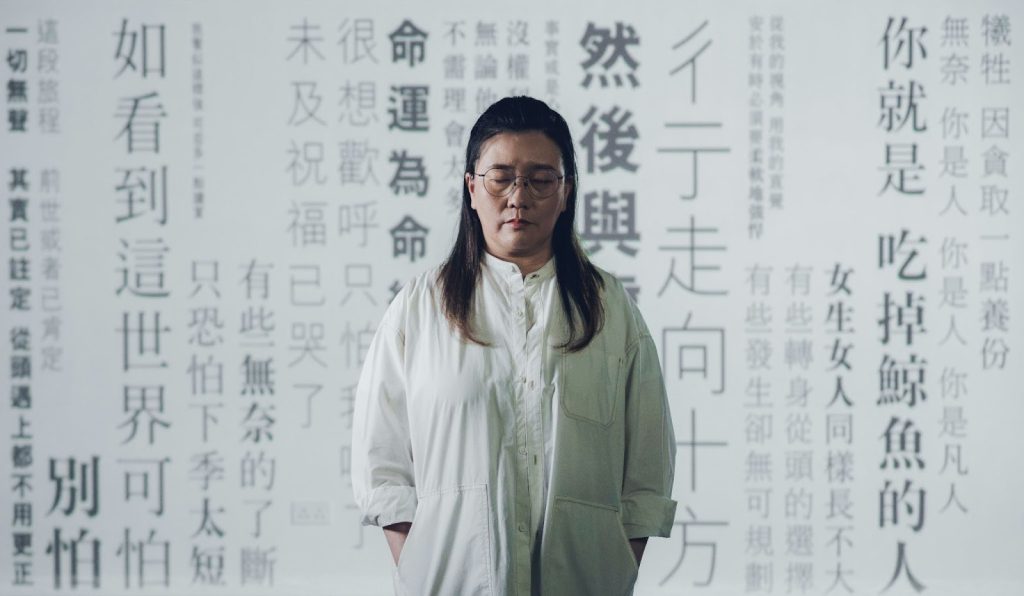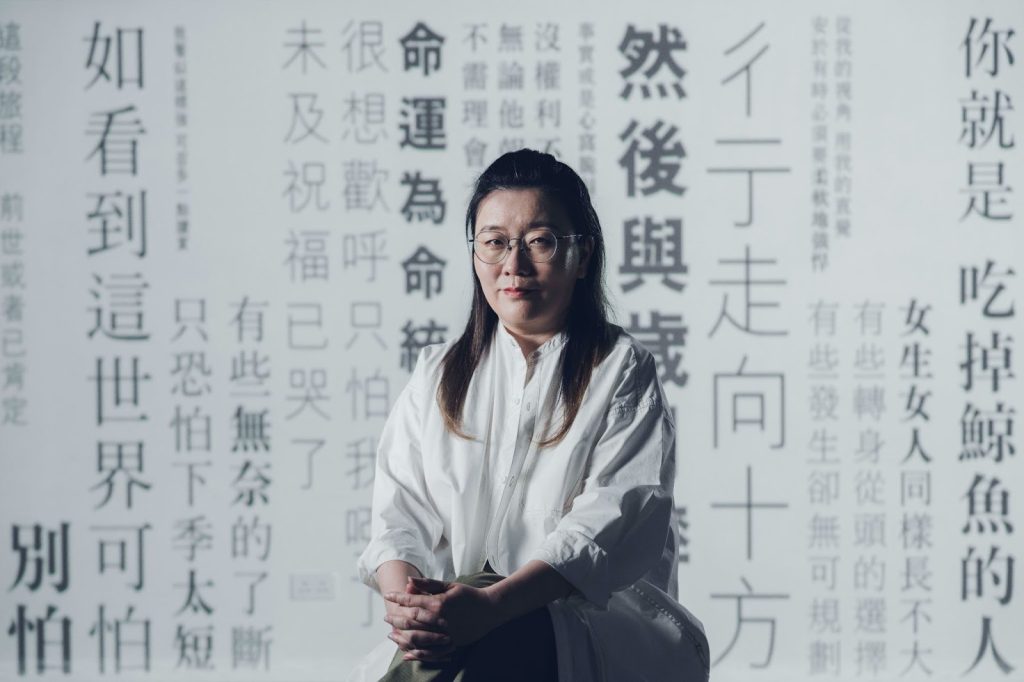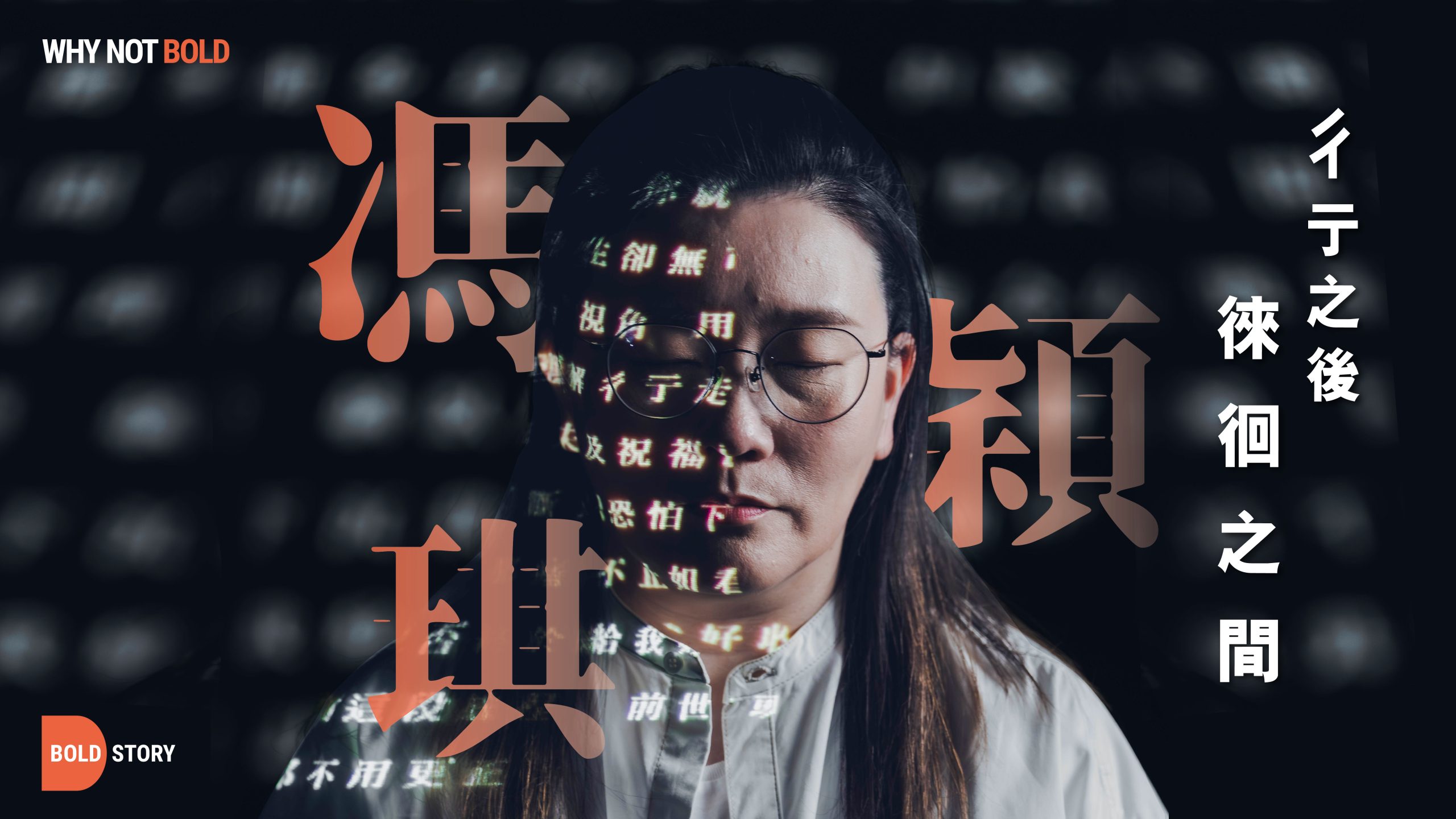Upon observation, Vicky Fung possesses distinct traits:
- A relentless ambition
- A mind teeming with questions
- A fondness for sake
During her studies, she grappled with the desire to pursue music and science, yet ultimately chose law. In her music career, she’s crafted both pop songs and community music. Not content with just songwriting and composing, she dove into being a singer-songwriter. Yet, producing alone didn’t satisfy her; she yearned to be an artist.
She remarks, “In truth, I don’t engage in anything solely for money.” But isn’t lawyering about financial prospects? She quips, “Law isn’t the most lucrative path. If I were after money, I’d turn to stocks or real estate.” A valid point. Music wasn’t chosen for money; it’s about passion. Her face, usually serious, softens with a sincere smile when discussing music and creation, “Composing… I’m certain I’ll continue until my last breath.”

For Vicky, creating is as natural as breathing, no exaggeration. A veteran in the music scene since 1996, she has penned over a hundred songs. Media often describe her bold switch from a lucrative law career to music. In her twenties, she realised law wasn’t her calling. Would she regret not switching at fifty? Choosing honesty, she altered her path.
After over two decades, she’s not just a producer, but also a singer. Any music-related venture is worth exploring. This journey has elevated her from a singer-songwriter to an artist. “Once you call yourself an artist, no one judges your art; they respect and afford you creative freedom,” she says. Vicky views art and commerce not as binary opposites. Be it commercial, community, or artistic, every form must find its way to thrive. Fung acknowledges her greed, “I want to do it all. Focusing solely on pop or community music wouldn’t fully express my creative desires. That’s why I need to be an artist.”
She describes her work as “on the fringe of pop”. In pop circles, her work is deemed “not pop enough”, despite creating popular hits like Sammi Cheng’s 《放不低》, Kay Tse’s 《偷情的禮儀》, and Gin Lee’s 《今天終於一人回家》. In the art world, her work is considered “very pop”. Collaborating with media artist Keith Lam on projects like “Cityscape Quadriptych” and the recent “Soul Walk” explores the fusion of art and technology. This “half-pop, half-art” approach enables her to infuse pop elements into community projects like “Every Life is a Song” and “落地開歌”, bringing music into the community fabric.

What’s your personal anthem? For Vicky, it’s “Travelling Soul”. It represents life’s journey, filled with varied landscapes, and the importance of moving forward, not fixated on specific goals but allowing oneself to explore and listen, then choose a path. Maybe embracing the moonlight, diving into whirlpools, unafraid of shattering to pieces. Isn’t this aimless roaming a form of romance?
This romantic notion stems from a challenging period in her life. “There was a time I couldn’t produce,” she recalls. Between 2006 and 2010, while embracing motherhood, she learned her son had autism, feeling like falling into an abyss. Facing this unknown, she lost hope and expectations for her son, struggling to share his condition without misconceptions. A friend’s earnest question made her rethink: “Are you ashamed? Do you want him to grow up in shame?” She questioned whether hiding her child’s condition was more about her comfort or his. Eventually, she requested music producer Hong Ka Chun to organise a concert as a gift to herself, marking her emergence from darkness.

In 2011, this gift was “Second Life: 2011”. The concert shared her journey and experiences, including her son’s story. Everyone anticipates “Day One”, but beginnings aren’t confined to it. “Day Two” is about being honest and relaxed. While not instantly enlightening, it allows embracing the state. Post-concert, she blogged, “That night, we experienced joy and darkness, trauma and fulfilment.” This marked her new chapter, learning to be more authentic.

It is her journey of small steps, with pauses for reflection at each crossroads, questioning if the path aligns with one’s true desires. Despite the lack of clear answers, she believes in the significance of questioning as part of life’s journey. Raised with traditional values, she questioned the end goals of education and marriage. In her music, she continually questions conventional methods, exploring how pop and community music can coexist. These unanswerable questions drive Vicky to respond and realise herself in novel ways. In the end, it’s all about the process.

During the interview, Fung presented a vision board, a testament to her commitments and goals: healthier eating, more greenery at home. Amidst her various roles, the board serves as a reminder of her identity as a creator, maintaining the energy needed to evolve into the person she aspires to be. Treating oneself kindly is a learned skill, and only by mastering self-care can one extend that kindness to others.
Then, she unveils two bottles of sake, each bottle adorned with the names of songs she has written, a testament to her love for sake. She describes this as a fusion of her soul and body, “《清酒之約》 is a pivotal song for me, marking a significant shift in how I present my inner self and incorporating my spiritual beliefs into my creations. This is a new chapter in my creative journey.” As she says, each day is to be embraced with anticipation.
In the tumult of everyday life, she suggests indulging in sake, allowing oneself to be momentarily lost before confronting reality. The night, ambiguous in its nature, offers a momentary respite before facing accountability.

Epilogue:
When asked if leaving law for music was her boldest decision, Vicky ponders, “Not really, I think getting married was bolder,” she says with a seriousness that blurs the line between jest and earnestness, “Changing jobs is one thing, but entering into a new social contract, committing to a relationship, often requires more bravery than taking up a new job.”
Her plunge into the music industry was almost without hesitation, for personal relationships, she remains grateful to those who invited her into the industry and those who have guided her along the way. You can sense that she is deeply sentimental.
In casual conversation, she shares insights from her current master’s studies, particularly about patriarchal societies, revealing why she often feels like she harbours a male soul within. This interview barely scratches the surface of her story.
Revisiting the initial observations, they are astute and accurate, ready for publication.
Photo source: BBOLD、vickyneverhome@blogspot

